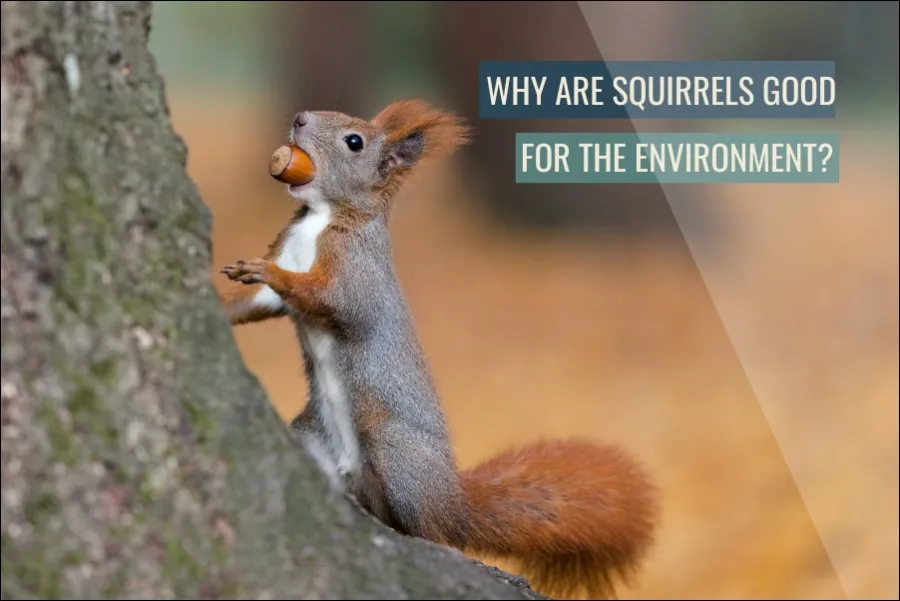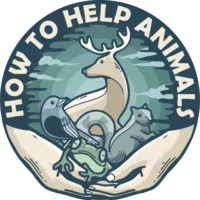
Did you know that squirrels play an important role in the environment? These often-overlooked animals are vital to the health and balance of many ecosystems.
Squirrels are important to the environment in many ways, including seed dispersal, plant diversity, pest control, and their role as a food source for other species. They also contribute to the health of ecosystems through their roles in seed dispersal and pest control.
Far from being just a common sight in parks and neighborhoods, squirrels are actually vital to the health and balance of many ecosystems. In this article, we’ll explore some of the ways in which squirrels are good for the environment.
How do squirrels disperse seeds?
Squirrels help spread seeds, which is one of their main environmental benefits. Squirrels are known to bury seeds and nuts, which can aid in the revitalization of forests and other ecosystems. Squirrels frequently fail to unearth the seeds they bury, resulting in the growth of new vegetation. Scatter-hoarding, as this phenomenon is called, is crucial to the revitalization of forests and other ecosystems.
How do squirrels contribute to plant diversity?
Squirrels do more for plant variety than just spread seeds. Some squirrel species, for instance, are known to transport seeds and young trees from place to place, which might aid in establishing plant populations in locations where they could not otherwise exist. Translocation is a method for introducing new plant species into an area, which can improve biodiversity.
How do squirrels control pest populations?
Squirrels are omnivores, meaning they consume both plant and animal stuff in their diets. Squirrels’ diets can include anything from seeds and nuts to insects like aphids and mites, and even fruit. Squirrels can aid in plant protection by reducing the number of pests, which in turn can lessen the need for chemical pesticides.
How do squirrels benefit other species?
Various ecosystems rely on squirrels, and these animals give many advantages to other species. Some birds of prey and larger animals, for instance, rely on squirrels for food. The seed dispersion and pest management services that squirrels may provide can help maintain healthy ecosystems that are, in turn, beneficial to a wide variety of other organisms.
What are the potential negative impacts of squirrels on the environment?
Squirrels benefit the ecosystem in many ways, but there may also be some drawbacks. Squirrels, for instance, can become a nuisance if there are too many of them in a given location. When squirrel populations get too large, they may begin to compete with other species for food and nesting places, which has the potential to have deleterious effects on both. In addition, squirrels may be a nuisance since they might dig up gardens and landscaping or gnaw on electricity cables.
How do squirrels adapt to urban environments?
Squirrels, being very adaptable creatures, have found success in a wide range of habitats, including urban settings. Squirrels in urban areas may get their nutrition from bird feeders, garbage cans, and even outdoor stoves and barbecues. They could also rummage through compost heaps or forage for fallen fruit or nuts to eat. Besides foraging for food, squirrels in urban settings may also make nests in trees, sheds, and other man-made buildings.
What are some ways to coexist with squirrels in urban environments?
You may take a variety of measures to live peacefully with squirrels and reduce the potential for the damage they may do if you happen to inhabit an area with a high squirrel population. To prevent squirrels from gaining access to your home or other structures, you can take measures such as installing squirrel-proof feeders and birdhouses and sealing potential entry points. Keeping your trash and compost area clean and well-maintained is another effective method for discouraging squirrels from rummaging into your garbage. You can also plant native trees and shrubs, which squirrels and other animals are less likely to eat.
In Conclusion
Many ecosystem services, such as seed dissemination, plant diversification, insect control, and providing a food supply for other species, are provided by squirrels. Overpopulation and property damage are two possible drawbacks of squirrels. Squirrels are very adaptive creatures that can survive and even thrive in human-dominated habitats; fortunately, there are ways for humans to live in harmony with them and lessen their negative effects. Sustainable land management methods, habitat preservation, and other conservation measures should also be taken to ensure the survival of squirrels. We can help guarantee the survival of squirrels for future generations by learning about their importance in the ecosystem and taking action to protect them.
